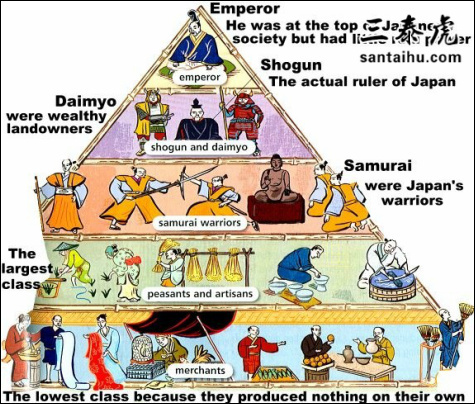为什么印度至今还存在种姓制度,印网友热议
Why does the caste system persist in India?为什么印度至今还存在种姓制度?QUORA网站读者评论:Niranjan Behera, studied at Se
Why does the caste system persist in India?
为什么印度至今还存在种姓制度?
QUORA网站读者评论:
Niranjan Behera, studied at Self-Studied
Here is the story of caste system. First of all erase all your prejudice about caste to understand my story. In the ancient golden era caste was a philosophical division of human nature. The philosophers study human nature and divided them in four categories (Varna).
先来介绍一下种姓制度。首先,请你摒弃对种姓的偏见。在古代黄金时代,种姓制度是对人性的哲学划分。哲学家们研究人性,并将其分为四类。
Brahmins – these types of peoples don’t attracted by wealth. They attracted by knowledge. They are the philosopher type people. They engage themselves in the search of knowledge and wisdom. You could include real scientists, philosophers, etc in this category.
Kshatriya – these types of people also don’t attracted by only wealth. They are in search for honour and respect. They are very energetic. You could include great kings in this category.
婆罗门——这类人不为财富所动。他们对知识感兴趣。他们是哲学家类。他们致力于探寻知识和智慧。这个种类囊括了真正的科学家,哲学家等等。
刹帝利——这类人也不在乎财富。他们追求荣誉和尊重。他们精力充沛。这个类别包括了伟大的国王。
Vaishyas – these types of people are attracted by wealth. They love to create wealth. These are businessman and industrialist type people. You could include the rich businessman and industrialist in this category.
Shudras – These types of peoples just want a 9 to 5 job and a descent salary to survive. You could include all the workers and employees in this category.
吠舍——这类人渴望财富。他们喜欢创造财富。他们是商人和实业家。你可以把富商和实业家归入这个类别中。
首陀罗——这类人只想要一份朝九晚五的工作和足够维持生活的薪水。所有的工人和雇员都可以归入这个类别。
Now the most important point, these categories are not exclusive. That means there is no 100% Brahmin or 100 % Shudra. And the second most important point, all the four types of people are required in a society for the smooth running of a society. We need philosophers, artists as well as businessman and regular 9 to 5 employees, peons, maids etc. We also need energetic people with self respect and integrity to lead the society. So all the four are equally important. In the golden era laws were framed by Brahmins. Kings took decision after consulting the Brahmins.
现在最重要的一点是,这些范畴并不排外。这就意味着并没有100%的婆罗门或100%的首陀罗。第二,最重要的一点是,社会的顺利运转需要这四种类型的人。我们需要哲学家、艺术家,也需要商人,需要普通的早九晚五的员工、工人、女佣等。我们也需要有活力、自尊自重、有诚信的人来领导社会。所以这4种人都同等重要。在黄金时代,法律是由婆罗门制定的。国王在征询婆罗门的意见后才会做决定。
Now, some profession starts to associate with a certain group. Scientist, philosophers etc are regarded as Brahmins. Great kings are regarded as Kshatriyas. The rich businessman and industrialists regarded as Vaishyas. Employees and workers are regarded as Shudras.
First categorization was done on the basis of quality, then categorization was done on the basis of occupation, then at last categorization was done on the basis of birth.
We can prove that caste was not decided by birth. If it was decided by birth how did they choose the first Brahmin in the world?
现在,一些职业开始与某个群体相联系。科学家、哲学家等被认为是婆罗门。伟大的国王被认为是刹帝利。富有的商人和实业家被认为是吠舍。员工和工人被认为是首陀罗。
最初分类以质量为基础进行,接着分类以职业为基础进行,最后以出身为基础进行分类。
我们可以证明种姓不是由出身决定的。如果这是由出身决定的,他们是如何挑选出世界上第一个婆罗门的?
As the law of nature every society degrades with time. Time changes everything. Every occupation became caste. And castes associated with Varnas. Then at the dark age everything decided on the basis of birth. Then new categories like the untouchables arrived. Thousands of superstitions blind India’s eye. A beautiful river become a filthy gutter.
From a philosophy caste system became a curse to Indian society.
正如自然法则一样,每个社会都会随着时间的推移而退化。时间改变了一切。每个职业都变成了种姓。在中世纪,什么都以出身而论。然后出现了贱民这种新类别。成千上万的迷信陋习蒙蔽了印度的眼睛。美丽的河流变成了肮脏的水沟。
出于哲理制定的种姓制度变成了印度社会的诅咒。
Aditya Veer Singh, Software Development Manager at Medlife.com - Discounted Medicines
Because it exploits one of the very basic emotional need of human: ego.
Most of the other divisions around the world were based on simple segregation in a small number of groups. And inevitably, the larger group was the one being exploited. Once they realized this fact, you have revolutions to throw away the upper minority group. At times, they get support from influential people from upper group.
Unfortunately, the people behind caste system design were more shrewd. They exploited the fact that humans love to have a feeling of superiority over others even if it is based on nothing significant. They created a full hierarchy instead of a simple classification.
因为它利用了人类最基本的情感需求之一:自我。
世界上大多数其他的分裂都是基于少数群体的简单隔离。不可避免的是,更大规模的群体是被剥削的群体。一旦他们意识到这一事实,就会爆发革命抛弃上层的少数群体。有时,他们会得到上层人士的支持。
不幸的是,种姓制度的幕后设计者更精明。他们利用了这样一个事实,即人类喜欢优越感,即使这种优越感并没有什么坚固基础。他们创建了完整的等级制度而不是简单的分类。
The biggest culprit in the continual of caste system are the middle level castes, they are ready to be treated as unequals as long as they get to do this to other human beings. They are the majority in our country and if they get united and take significant steps to abolish caste system, it is really very easy.
Caste system is not just about discrimination, if you somehow feel superior(or proud) just because you were born in a particular caste, you are effectively fueling the system. That is the only reason caste system still prevails. Imaginary superiority and inferiority complexes among people of different castes.
The biggest obstacle we face in ending this system is marriages. No matter what a huge percentage of marriages still happen based on caste. Unless caste is removed from such a fundamental institution, we are never going to be able to end this. Other than people from different castes start mixing with each other in all aspects of life including family relationships, there is no way this deep-rooted system is going away. I feel very disappointed when all my friends talk so much about not believing in caste and considering everyone equal but don't say a word when their future bride/groom is looked exclusively in their subcaste. Not a single person has raised his/her voice till now, in my knowledge. This needs to happen at a much bigger scale across the country to have any effect.
在延续至今的种姓制度中,最大的罪魁祸首是中层种姓,只要他们对其他人这样做,他们就能对其他人进行不公平对待,他们就愿意接受不平等待遇。他们是我们国家的多数群体,如果他们团结起来,采取措施废除种姓制度,那是轻而易举的事。
种姓制度不仅仅是歧视,如果你仅仅因为出身于某个特定的种姓而感到优越(或骄傲),那么你就有效地助长了这个制度。这是种姓制度仍然盛行的唯一原因。不同阶层的人之间充斥着虚幻的优越感和自卑情结。
我们要终结这个制度,面临的最大障碍是婚姻。不管怎样,仍然有很大比例的婚姻是基于种姓的。除非种姓制度从基本制度中废除,否则我们永远无法结束这一切。除非来自不同社会阶层的人在家庭关系在内的生活各个层面内开始相互交往,这种根深蒂固的制度是不可能消失的。当我所有的朋友都说不相信种姓,每个人都生来平等,但却对自己未来的新郎、新娘只能在同一种姓类别中物色时毫无怨言,我感到非常失望。据我所知,到目前为止还没有人提出异议。这需要在全国范围内更大规模爆发,才能产生效果。
Anbu Venkat, toy-tiger
Its very unfortunate that this system outlived its need/purpose and caused a section of people to be discriminated based on their caste which is a real evil.
In my personal opinion abolishing the caste system just from the paper doesn't do any good. It has had an adverse effect on a particular section of people in the society, they have been ignored and denied the basic rights for centuries while the other sections of the society thrived. So in order to balance the inequality the reservation system was brought into effect and is helping in fetching the much needed justice to those people who has suffered for ages.
Announcing "No Caste" now will be a hard hit on the present reservation system in India and will leave these people with no compensation for the loss they suffered. The social inequality will still exist because they will be left far behind the rest of the society.
很不幸,这种制度超越了需要/目的,导致一部分人因自己的种姓而受到歧视,这是一种真正的恶习。
在我个人看来,单纯在报纸上废除种姓制度没有任何作用。它对社会中某一部分人产生了不利的影响,几个世纪以来,他们一直被人忽视,被剥夺了基本权利,而社会的其他群体却蓬勃发展。因此,为了平衡这种不平等,预留制度得以实施,以期帮助那些长期遭受苦难的人们获得急需的公平。
现在宣布“废除种姓制度”将对印度现有的预留制度造成沉重打击,并将使这些人无法获得对他们所遭受损失的补偿。社会不平等仍然存在,因为他们将远远落后于社会的其他群体。
Many would differ with my views(because i would argue against my current views few months back) on the reservation system but i feel that is a much needed one. I understands how hard it feels when you are the most eligible person for a job and is grabbed by someone just because he is given undue advantage. Keep in mind this is the same advantage that our ancestor enjoyed and that has played a vital role in bringing us where we are. So if you plan to inherit their assets you must also inherit the debts and consider this as pay back time to set things straight.
Most important thing among all is there are millions in rural India(which is really where India is) who are striving hard to be the first graduate in their lineage. While few sections enjoy 4 or 5 generations of educated people.
So till this thing gets straight to make a balanced society there should be reservation and if abolishing caste system would hit that it can wait!
And i sincerely hope this happens sooner than later.
很多人会不同意我对预留制的看法(因为几个月前我也会反对我目前的看法),但我觉得这是非常必要的。我能理解,当你自认最适合某个工作,却仅仅因为某人获得了不适当的优势而抓住机遇,你会有多难过。请记住,这是我们的祖先享受过的同样优势,这种优势在把我们带到了今天的位置上起了至关重要的作用。因此,如果你打算继承他们的资产,你也必须继承他们的债务,把这视为还债,坦然接受。
最重要的是,在印度的农村地区有数百万人正在努力成为他们家族中第一个毕业生。而少数一部分人已经有4到5代人受过教育。
因此,在社会平衡之前,预留制应该继续存在,如果废除种姓制度会受到打击,那么可以等等再实施!
我衷心地希望这一切尽快发生。
Mani Duraisamy, An inquisitive Quoran, trying to learn more
Caste persists in India, because its an inherent part of Indian society and culture. Whatever its faults might be, inequality is a part of Nature. Its foolish to go against that force of Nature. Its tempting to assume that with the growth of science and atheism - caste system and identities should disappear.
But in realities- humans always form groups. Group ism is a trait which sets humans apart from other lesser animals. Any human being would want to look for a similar of his ilk. It would help him be in his comfort zone. It would help to have someone who matches your frequency, has your lifestyle and shares the same sympathies as yours. Caste is one of the attributes that helps in maintaining this bond.
There are three angles to this-Economic angle, political angle and cultural angle, which explains why caste system still persists in India
种姓制度在印度依然存在,因为它是印度社会和文化的固有部分。不管它有多少缺点,不平等就是自然的一部分。违背自然的力量是愚蠢的。人们很容易认为,随着科学和无神论的发展,种姓制度和身份应该消失。
但在现实中——人类总是会形成不同的群体。群体主义是人类区别于其他低等动物的一种特征。每个人都想找和他相似的人。这能帮助他找到舒适区。如果有人能和你相匹配,有着和你一样的生活方式,和你有着同样的慈悲,那是大有益处的。种姓是帮助维系这种联系的因素之一。
我们可以从经济角度、政治角度和文化角度三个角度解释种姓制度为何在印度依然存在
Economic angle:
Today this is not of much relevance, but if one were to observe Indian history (and even the civilizations like Rome and Egypt), they see that a certain level of social stratification is indeed necessary to maintain order. In a predominantly agrarian society like India, a lot of manual labor is inevitable. We need a lot of people to do the labor work- tilling the lands, disposing of waste, transporting the produce. Each activity would be the specialty of one group of people.
For the purpose of being unbiased, I am going to ignore the Indian context here, and show a pyramid of the Japanese system
经济角度:
今天,这个因素并没有太大关系,但如果你观察印度的历史(甚至像罗马和埃及这样的文明),他们会发现一定程度的社会分层对于维持社会秩序确实是必要的。在印度这样一个以农业为主的社会里,大量的体力劳动是不可避免的。我们需要很多人来做体力活——耕种土地,处理垃圾,运输农产品。每群人都有自己的专长。
为了公正起见,我要跳出印度的背景,展示日本社会的金字塔
You can see that there is only one emperor and shogun , but a lot of peasants and merchants. Thats because the job of a peasant is such that they require a lot of manual effort and lesser qualifications and lesser pay. Now apply the same logic to the Indian caste pyramid and you might understand how it made (note the past tense) economic sense for the caste system to have persisted for centuries.
你可以看到一个社会只有一个皇帝和幕府,但有很多农民和商人。这是因为农业活动需要大量的体力劳动,不太需要资历,工资也较低。现在把同样的逻辑应用到印度的种姓金字塔上,你可能就会明白它使(注意:是过去时态)种姓制度持续了几个世纪,有多大的经济意义。
Political Angle:
Next comes the political angle. This is pretty much relevant in today’s India. Democratic Indian political structure and our Constitution makes sure that each and every group irrespective of caste, creed , language, region and gender gets their voice heard. Article 15 and 16 states that the State shall not discriminate against any caste and will also provide reservations to the socially disadvantaged.
Caste becomes important here- because politicians representing a caste can democratically get elected by his caste/ community and work for their betterment. In a democracy, people listen to their voters. Be it upper-caste or Dalits, politicians are a reflection of the social structure of our society. If caste-based politics exist, its because that inequality is natural and someone is needed to represent their problems in the corridors of power.
政治角度:
接下来是政治角度。这在今天的印度社会非常有关系。敏煮的印度政治结构和我们的宪法确保每一个群体,不分种姓、信仰、语言、地区和性别,都能发出自己的声音。第15条和第16条规定,国家不得歧视任何种姓,并为处于社会劣势的人提供预留席位。
种姓在这里变得很重要——因为代表某个种姓的政治家可以通过他的种姓/社区得以敏煮地推选,为他们的进步而努力。在敏煮国家,人们听选民的话。无论是高种姓还是贱民,政客都是社会结构的反映。如果存在以种姓为基础的政治,那是因为不平等是自然的,需要有人在权力走廊内反应他们的问题。
Cultural angle:
I now come to the cultural angle. India might be a secular country on paper, but we are a highly religious one in reality. Caste has become an ID card of our culture. Discrimination is bad, but caste is not. The caste-based rituals may or may not make sense, but people dont want their way of life to die with them or get lost in the sands of time. Caste system plays an important binding role here.
Caste based symbols and practices are a remainder of our culture. Its a way of reminding ourselves that our culture is much older and the good things in it needs to be preserved. Caste adds to the diversity of Indian culture. It adds to the variety and sets unique groups apart.
文化角度:
现在我想从文化的角度来谈谈。理论上印度可能是一个世俗国家,但实际上我们是一个高度宗教化的国家。种姓已成为我们文化的一张身份证。歧视是不对的,但种姓制度却不是。以种姓为基础的宗教仪式可能有道理,也可能没有道理,但人们不希望他们的生活方式与他们一起消亡,或迷失在时间的沙漠中。种姓制度在这里起着重要的约束作用。
基于种姓的习俗是我们文化的一部分。这是一种提醒我们自己,我们的文化更为古老,其中的精华需要被保留的方式。种姓制度增加了印度文化的多样性。它增加了多样性,并将独特的群体区分开来。
In summary- Caste system persists because humans almost always classify themselves according to some trait. They look for commonalities. Japan destroyed its caste system thanks to its Meiji reformation. In India, no such reformation exists and is systematically opposed by corrupt rulers.
总而言之,种姓制度之所以存在,是因为人类总是根据某种特征来划分自己。他们寻找共同点。由于明治维新,日本摧毁了它的种姓制度。在印度,这种改革根本不存在,而且还遭到腐败统治者的有组织的反对。
Dinesh B, why to try when destiny is predetermined
I grew up mostly in tier II or tier I cities and belong to Open category.
During my first job 2011/12, I met love of my life X.Sharma, she is a Brahman from Rajasthan state. We had wonderful time together and were looking forward to get married and convince parents.
As usual her family objected. Only objection was me being a non-brahman and south Indian. Her family got her engaged to someone from their community two weeks back so my 5 year relationship comes to an end because of my birth (caste & location). Still going through depression and using quora a source to vent out my frustration.
我主要在一、二线城市长大,属于开放类。
在我2011/12年的第一份工作中,我遇到了我生命中的最爱X.夏尔马,她是拉贾斯坦邦的婆罗门。我们在一起度过了美好的时光,我们期望能结婚并说服父母。
不出意外,她的家人反对我们的事。他们提出的唯一异议就是我不是婆罗门,也不是南印度人。她的家人两周前让她和同一社区的人订了婚,我这5年的感情因为我的出身(种姓和出生地)而结束。我现在还很难过,只能通过quora等网站发泄我的失望情绪。
Future: This is the biggest irony, I am 27 now and when my family wants to get me married they will also look for a girl from our community so I will also become pawn in this caste system. As long as this happens caste system will persist.
PS: In India being an upper caste wont be sufficient you have to belong to their particular sub caste again to get married. So good luck changing anything in our country.
The only reason I am not mention my caste is not to propagate it.
未来:这是最大的讽刺,我现在27岁了,当我的家人想让我结婚的时候,他们也会从我们的社区里物色一个女孩,所以我也会成为这个种姓制度的人质。只要这种情况继续发生,种姓制度就会继续存在。
补充:在印度,身为高种姓也是不够的,你还得属于他们特定的次等种姓才能顺利结婚。祝你们好运,希望你们能改变我们的国家。
我不提及我的种姓的唯一原因是不想宣扬。
Sasi Kanth, Curious about our Universe, Philosophy and Mathematics
Being an Indian, am ashamed to tell that several Indians still follow the caste system very blindly. We might not notice it on a day to day basis but the caste feeling comes out in open when it comes marriages.
Parents against Inter-caste Marriages:
Situation is changing in the cities but the rural areas didn't. We do hear of "Honour Killings" when a family member kills the person who got married to someone from a different caste. Its disgusting but true!!
Even if the parents are favorable for inter-caste marriage, the relatives come into picture and put severe pressure on them. Parents are ready to get their girl married to some one unknown guy from the same caste rather than the guy she likes.
作为一个印度人,我很羞愧地告诉大家,一些印度人仍然非常盲目地遵循种姓制度。我们可能不会在日常生活中注意到它,但是一旦涉及到婚姻时,这种种姓的思想就出现了。
父母反对跨种姓婚姻:
城市的情况正在改变,但农村地区还是一样。我们都听说过“荣誉处决”,就是家庭成员杀死了跨种姓结婚的人。这很恶心,但却是真事!!
即使父母赞成跨种姓婚姻,亲戚们也会掺和进来,对他们施加巨大压力。父母们都愿意让他们的女儿嫁给来自同一种姓的陌生人,而不是她喜欢的人。
Caste based politics:
Politicians even today play the caste card in order to gain votes. Nominating a guy from the majority caste in his constituency is very common in India. Even several people in rural areas vote to a candidate purely based on the caste.
Reservations based on Caste:
Reservation system is another problem where a certain percentage government jobs or university seats have been reserved for a particular caste. Jobs/Education has to be earned with merit and not because of caste.
I hope to see a change in my life time !!
基于种姓的政治:
即使在当今社会,政客们也会为了赢得选票而利用种姓制度。在印度,提名选区内的大种姓的人是很普遍的。农村地区,甚至有人纯粹根据种姓来给候选人投票。
基于种姓的预留制:
预留制度是另一个问题,一定比例的政府职位和大学席位都被预留给特定种姓了。工作/教育机会应该靠才学来争取,而不是靠种姓制度。
我希望在我有生之年能看到改变!!
Abhijit Mukherjee, works at Department of Electrical Engineering, Jadavpur University
This is only my personal impression I cannot claim it to be above doubt or flaws. There are a number of reasons :
1) Certain castes are marked as 'scheduled castes' and 'other backward castes' and people identified as belonging to those castes get considerable favor through elaborate quotas in college admission, lucrative public sector jobs and hence they have no material reason to demand abolition of the caste system.
2) The politicians have arranged their pieces on the basis of the caste divides and their entire rule book of how to exploit people's sentiments are conceived with the caste considerations at the very foundation.
这只是我的个人感想,我不能说它没有问题或没有瑕疵。原因有很多:
1)某些种姓被标记为“预留种姓”和“其他落后种姓”,这些种姓的人通过大学入学、收入丰厚的政府工作的配额获得了相当大的助益,因此他们没有切实理由要求废除种姓制度。
2)政客们是根据种姓来安排自己的党羽,他们利用公众情感的规则都是基于种姓的考虑而制定的。
3) There are illiterate, semi-literate and highly literate people who have traditionally learnt to judge people by their respective caste affiliations. Their language, anecdotes, vast range of prejudices are all so closely entangled with caste identities of people that culturally it is difficult to extricate them from this putative classification of human beings.
4) Since the caste system divides the nation vertically and effectively weakens the social fabric, international power corners have a stake in the continuation of India's caste system. Thus academic forums, centers, disciplines have been established with close international links, that evaluate every event in terms of caste related consequences and create considerable inter caste strife in the name of awareness campaigns. Till now this creed, in the garb of liberal intellectuals, have considerably succeeded in weakening the national spirit.
3)社会上有文盲、半文盲和高识字率的人,他们一代一代地学会根据自己的种姓关系来判断别人。他们的语言、轶事、各种偏见都与人们的种姓身份密切相关,以至于很难在文化上把他们从这种对人的分类中解脱出来。
4)由于种姓制度将国家垂直地分割开来,有效地削弱了社会结构,印度种姓制度的延续与国际势力利害攸关。因此,我们建立了具有密切国际联系的学术论坛、中心和学科,根据与种姓有关的影响来评估每一项活动,并以提高觉醒运动的名义造成了相当大的种姓间冲突。到目前为止,这一信条,披着自由知识分子的外衣,已经相当成功地削弱了我们的民族精神。
All these and perhaps a few more factors have kept this scourge alive and are corroding the nation's strength.
所有这些,也许还有更多的因素会让这一人祸继续存在,并继续腐蚀印度的力量。
Aniket Kadam, We the people!
I won't go in details about the caste system or its benefits or it's drawbacks. But, I would like to estimate why this system exist.
We, Humans, are probably the most dominating creatures who have left their impressions on earth. We use tools to overpower our fellow beings.
We are naturally overpowering creatures.
我不会详述种姓制度的好处或缺点。但是,我想谈谈这个系统存在的原因。
我们人类,可能是在地球上最具统治力的生物。我们用工具控制我们的同胞。
我们天生就是强大的生物。
Human beings are born to dominate or our greed has made us to dominate over others. CASTE SYSTEM was an outcome of this domination. People used it to their own benefits. And it will continue to exist as Humans love to dominate.
Whereas in INDIA, we have a Religion Mosaic and we have ingrained caste system deep into our blood. It will be visible in one form or other, sadly.
Our Constitution has laid down principles to bring class, community and regional equality. Diversity is our strength. We are growing at rapid rate both in educational and in economic way.
人类生来就是要支配别人的,抑或是我们的贪婪让我们支配别人。种姓制度是这种统治的结果。人们用它来造福自己。它将继续存在,因为人类喜欢支配。
而在印度,我们有马赛克式的宗教,我们把种姓制度深深根植于我们的血液中。可悲的是,它会以这样或那样的形式出现。
我们的宪法规定了阶级、社区和地区平等的原则。多样性是我们的优势。我们在教育和经济两方面都迅速增长。
Education and community maturity is essential for carving out this unnecessary stigma of caste. It will take more years to remove this system. And political indulgence is as threatening for this system.
教育和社区的成熟对于消除这种不必要的种姓歧视至关重要。要废除这个系统需要更长的时间。政治上的纵容对这个制度来说同样是种威胁。
The caste system exist because it is a double edged sword. Political masters used it for Votes and for crawling up the economic ladder. Now both the lower caste's use this for bargaining power at times and the upper caste's use it for their own domination.
It's a see-saw of uncertainty. We can expect it to see this system for the next century. As long as our breed exists, our natural tendency to dominate over others will exist then also. Caste system will stay. Either in it's core form or diluted. Sadly
种姓制度之所以存在,是因为它是一把双刃剑。政治领袖们用它来投票,在经济阶梯上攀爬。现在,低种姓的人有时会用它来谈判,而高种姓的人则用它来统治自己。
这是一种不可靠的跷跷板。我们估计在下个世纪还是能看到这个制度。只要我们印度人还存在,我们支配他人的天然欲望也会随之存在。种姓制度将继续存在。或多或少罢了。
Anurag Kumar, My caste is Indian.
There are many reasons.
- Our politicians are keeping it alive to secure a 'dalit vote bank'.
- Reservation system is helping in it, as you have to get a caste certificate for getting reservation, which means that you have to know your caste. It also means that others will know your caste, when you take admission in a college or get a job using it.
- See the matrimonials section of any newspaper. You can see the headings easily like Brahmin, Kayastha etc. People don't want to marry outside their castes.
- Stereotypes- some people have a stereotype for a particular caste. For example, some people have a stereotype that Rajputs are hot headed. Hence people try to know someone's caste to have an idea about his nature.
- You can see people bragging about their castes. Some brahmins keep on flaunting about their castes.
- Some people actually do the work assigned to them by the Varna system. For example, most of the sweepers are 'valmikis' .
- People use certain surnames which give an idea about their castes. For example, Chaubey surname is generally used by Brahmins.
The list is not an exhaustive one.
原因有很多。
1。我们的政客们为了确保“达利特票仓”的存在而维系这个制度。
2。预留制在这方面起了作用,因为你必须有种姓证书才能获得预留席位,这意味着你必须知道你的种姓。这也意味着,当你通过种姓考上大学或找到工作时,别人会知道你的种姓。
3。请翻阅所有报纸的征婚专栏。你可以很容易地看到像婆罗门,刹帝利之类的标题。
4。固有印象——有些人对特定的种姓有刻板印象。例如,有些人有一种成见,认为拉其普特人性子急躁。因此,人们试图了解某人的种姓以了解他的本性。
5。你可以看到有些人会吹嘘他们的种姓。一些婆罗门总是不停地炫耀他们的种姓。
6。有些人实际上从事的是Varna体系指派给他们的工作。例如,大多数清洁工都是“valmikis”。
7。人们用某些姓氏来彰显他们的种姓。例如,Chaubey这个姓氏就通常被婆罗门使用。
这个列表是列不完的。
Bodi Sanz, Traveler. Writer. Self improvement junkie
Well if everyone were the same caste, how would we know who to exclude?
People like to segregate. A friend once told me about this experiment- a group of children were given T-shirts in two colors. Some kids got a red t-shirt, and some kids got blue. No further instruction. Almost automatically, the kids with the blue t-shirt flocked to one side , and the kids with the red t-shirt flocked to the other.
如果每个人都是同一种姓,我们怎么知道该排斥谁呢?
人们喜欢搞小集体。一个朋友曾经跟我说过一个实验——给一群孩子两种颜色的T恤。一些孩子得到了红T恤,一些孩子得到了蓝T恤。并未给孩子们进一步的指令。但几乎是自发地,穿着蓝色T恤的孩子们涌向一边,穿着红色t恤的孩子们涌向另一边。
So deeply is identification with a group ingrained. People like to belong to something. It helps make sense of the world, especially in a wildly heterogenous society like India. They also like to feel superior to others. Be of the “in” crowd.So- if you have people of different colors, that's where you segregate. If everyone is the same color, then it's religion. If it's the same religion, then it's caste. If everyone was the same caste, people will most probably find something else. As long as our evolutionary physiology remains the same, we will continue to have social inequity.
对一个群体的认同是如此根深蒂固。人们喜欢归属感。这有助于理解世界,特别是在像印度这样的异质社会中。他们也喜欢自己比别人优越的感觉。成为人群中的一员。如果你发现谁跟你肤色不同,你就将他区隔开来。如果每个人都是同一种肤色,那么就看宗教。如果宗教也相同,那就看看种姓。如果每个人都是相同的种姓,人们很可能还会找别的东西来划分人群。只要我们的进化生理学保持不变,我们社会的不平等就会继续存在。
版权声明
我们致力于传递世界各地老百姓最真实、最直接、最详尽的对中国的看法
【版权与免责声明】如发现内容存在版权问题,烦请提供相关信息发邮件,
我们将及时沟通与处理。本站内容除非来源注明五毛网,否则均为网友转载,涉及言论、版权与本站无关。
本文仅代表作者观点,不代表本站立场。
本文来自网络,如有侵权及时联系本网站。
-
1
चाइना में रेडी और ठेले Local shops in china || L...
- 2
- 3
- 4
- 5
- 6
- 7
- 8
- 9
- 10
-
1
चाइना में रेडी और ठेले Local shops in china || L...
- 2
- 3
- 4
- 5
- 6
- 7
- 8
- 9
- 10











